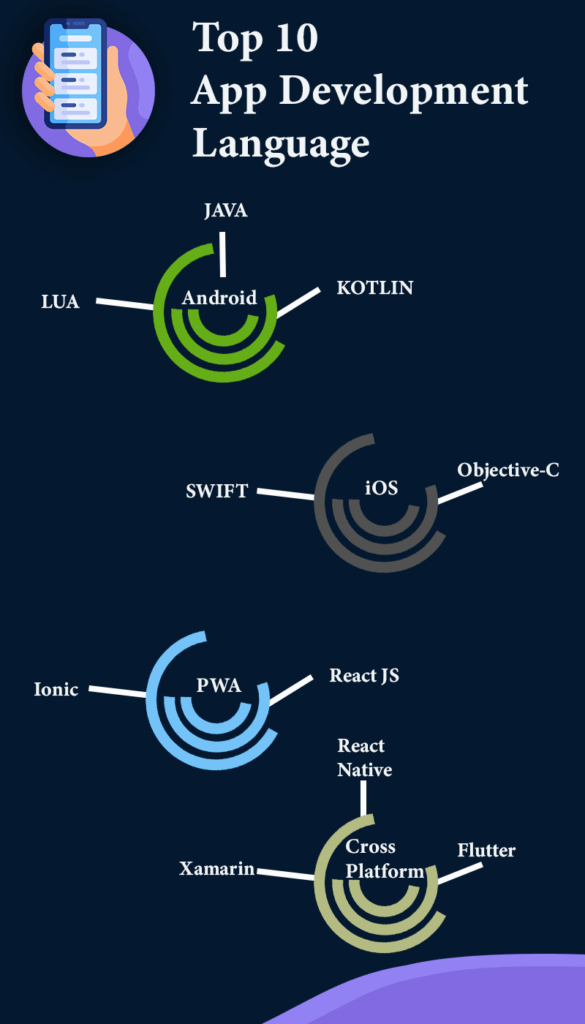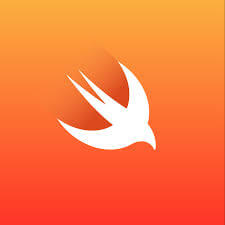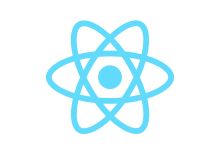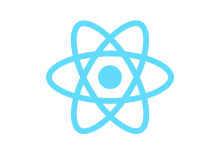Top 10 App Development Languages
The use of smartphones is globally increasing among people from all walks of life. A survey of Statista reports there are 6378 million international smartphone subscriptions in 2021.
This report also reveals that this amount would reach 7516 million subscriptions by 2026. This trend also leads towards more utilization of applications. But to create such applications, the selection of app development languages is becoming challenging for businesses and developers.
That is why this article is going to discuss the best app development languages. Moreover, this guide categorises mobile applications into distinct types and discusses the best languages for different kinds of mobile application platforms.
Contents
- 1 Key Takeaways
- 2 Types of Mobile App Development
- 3 Native Android
- 4 Native iOS
- 5 Progressive Web Application (PWA)
- 6 Cross-Platform
- 7 Best Mobile App Development Languages
- 8 Best App Development Languages for Android
- 9 1. Java
- 10 2. Kotlin
- 11 3. Lua
- 12 Best App Development Languages for iOS
- 13 4. Swift
- 14 5. Objective-C
- 15 Best App Development Technologies for PWA
- 16 6. Ionic
- 17 7. React JS
- 18 Best App Development Languages for Cross-Platform
- 19 8. React Native
- 20 9. Flutter
- 21 10. Xamarin
- 22 Conclusion
- 23 FAQ
- 24 What technologies can I use to develop a mobile app?
- 25 What are the best app development languages?
Key Takeaways
- Java, Kotlin, and Lua are usual technologies for Android apps
- Swift and Objective are the best choices for iOS apps
- Ionic and React are great for PWA development
- React Native, Flutter, and Xamarin are cross-platform frameworks
Types of Mobile App Development

Here are the 4 major ways you can develop mobile applications:
Native Android
Android is radically a mobile operating system. Basically, this is an advanced version of the Linux kernel that was initially released in 2008 for touchscreen gadgets, including tablets and smartphones. The applications that are launched on this platform are known as Android applications.
The Q1 2021 survey report of Statista Research Department discloses that around 3.48 million Android applications are available on Google Play. Moreover, if we talk about the best Android app development languages, then Java, C++, Lua, and Kotlin are prominent.
Here are the core advantages of app development with Android:
- The app development with Android OS is quick, but its fast app building, testing, and launching cycle also reduce the time to market (TTM). So, app development with Android is beneficial for businesses that want to overcome their app-building duration and fasten their go-to-market (GTM) approach.
- Android app development also confers great versatility to its users. Indeed, it is seamless to target smartphones, wearables, desktops and tablets with your Android applications. Developers can also easily integrate their Android applications with the internet of things (IoT), virtual reality (VR) and augmented reality (AR) functionalities.
- Another major advantage of using Android for app development is its good ROI. Surely, it is uncomplicated to access Android SDKs, and businesses can create interactive applications with less cost and time. In addition, Android platforms like Google Play Store only ask for a one-time payment option when you need to launch an application.
- In the same token, app development with Android comes with superlative customization properties. Android applications are infused with numerous advanced functionalities and multimedia tools.
- Security has become a primary concern for both enterprises and developers. So, if you want to make highly secure mobile applications, then Android could be a great choice for you. Likewise, anti-tamper tools, limited access, transit data protection and several other built-in app safety features in Android are very beneficial to improve app security.
Native iOS
iOS is another mobile platform that was initially launched in 2007 by Apple with the name of iPhone OS. It holds 26.35% market shares, according to the recent data reports of StatCounter.
This operating system usually covers Apple devices, including iPhone, Apple TV, iPod, Mac, Apple Watch and iPad etc. All applications that are designed to launch on the iOS mobile computing platform are known as iOS apps.
Statista Research Department shares around 2.22 million iOS applications are available to download on Apple Store according to Q1 2021. This figure also makes iOS the second most used app development platform.
Here are the main benefits of iOS app development:
- The best thing about making an app with iOS is its classic testing practice. It is quick and simple to test your application with iOS because there are only a finite number of iOS devices and versions available in the market. So, you can fasten your testing process.
- Moreover, big enterprises prefer to go with iOS app development because iOS applications confer great security features. Yes, both Apple devices and OS grants security layers against data breach, malware, phishing and hacking threats. This is also a reason that enhances the loyalty of iOS app users.
- iOS applications are considered very good when it comes to performance. Definitely, an amazing merger of software and hardware supports iOS applications to maintain their performance. This benefit also leads to customer loyalty.
- On the other hand, if your target audience is from the United States and Europe, you should prefer to go with iOS app development. It has been noticed that people of the UK, Germany, USA and France still believe a lot in Apple’s smart devices.
Progressive Web Application (PWA)
PWA technologies are basically web applications that utilize properties of progressive enhancement approach and web APIs to confer user experience similar to a native app.
Businesses can run progressive web applications on all platforms with improved user experience features.
PWA is known because of its fascinating benefits. We are also presenting the major ones here:
- PWA applications are considered the most responsive ones. They can work on any device, screen size or browser because of their flexible user interface.
- It is also easy to find such applications on search engines because of their web app properties. Therefore, people who prefer to use search engines to find products or services can easily access PWA applications.
- Do you think PWAs are only web or desktop applications, and you can’t install them on mobile devices? If yes, then you are wrong. Another great advantage of using PWA is it’s easy to install characteristics. Luckily, you can install PWAs and can also access them when you are offline.
- PWAs are also famous because of their fast load time speed. By using PWA technologies, companies enhanced its page speed to 38 percent.
- Appealing application icons, low development cost and push notification features are also some advantages of using PWAs.
Cross-Platform
Cross-platform app development is an approach that allows coders to develop a single application for multiple platforms. Yes, cross-platform applications could be run on multiple app platforms or operating systems rather than building separate versions for each OS.
Flutter, Xamarin, Ionic, and React Native are some of the ideal app development languages for cross-platform that businesses can consider using.
Here are the primary advantages of Cross-platform app development:
- With cross-platform app development, you can spontaneously launch your application on different app platforms such as iOS, web and Android. This quick launch doesn’t only overcome your app development duration but also reduces the development charges.
- Similarly, cross-platform development permits businesses to target a large audience because their single app version works on all operating systems and devices.
- Furthermore, cross-platform technology also confers automatic updates that is a great relief for users who don’t like downloading app updates after a few days. The maintenance of such applications is also easy and quick.
Best Mobile App Development Languages
Here are the best mobile application development languages:
| App Development Language | Type of App |
| Java | Android Native |
| Kotlin | Android Native |
| Lua | Android Native |
| Swift | iOS Native |
| Objective-C | iOS Native |
| Ionic | PWA |
| React | PWA |
| React Native | Cross-Platform |
| Flutter | Cross-Platform |
| Xamarin | Cross-Platform |
Let’s dig deeper to know more about each mobile app programming languages.
Best App Development Languages for Android
Keep reading to know more.
1. Java

Java is one of the pioneer programming languages that was released in 1996. However, it is still widely useful, particularly when it comes to Android app development. It provides great support to Android Studio to create interactive mobile applications.
Though many coders consider it an old-fashioned language but with 11.17% ratings, Java has been ranked as the second most popular programming language according to the TIOBE Index 2021.
Core Features of Java
Open-Source & Object-Oriented — The availability of numerous resources and libraries speeds up the Java Android app development. The object-oriented programming feature also enables businesses to extend or reduce their app services anytime.
Easy to Learn — The scripting structure of this app development language is also familiar with English, so it is easy to code and learn. Even it is quick to build applications with this high-class programming language.
Platform Independent — Java follows BYTE code that means you can compile the script by utilizing any computer in the world without any change. Moreover, Java also acts upon the slogan “Write Once, run anywhere” (WORA).
Secure — This Android app development language is considered very secure because Java applications are run and administered in virtual machine sandboxes.
Easy Integration — It is seamless to integrate Java with development tools like Junit, Pinpoint, NetBeans and much more.
2. Kotlin

If you are willing to build interactive, fast and attractive Android applications, then you shouldn’t ignore Kotlin. Indeed, Kotlin is one of the best Android app development languages that 60% of Android developers use nowadays.
Core Features of Kotlin
Quick App Development — With Kotlin, it is quick to develop an Android application because of its shortcodes. Indeed, Kotlin uses a small scripting line to build Android apps.
Lazy Loading — It is another exciting feature that Kotlin offers to businesses. With lazy loading property, Kotlin displays the primary resources or elements of an application as a priority. This feature also enables coders to keep the unimportant resources in secondary memory.
Null Safety — To deal with problems like NullPointerException, Kotlin grants null safety property to developers. With this feature, you can avoid system crashes that occur because of NullPointerException.
Open-Source — Kotlin is an open-source community and provides coders several chances to get help from available libraries or GitHub.
Interoperable — This is an entirely interoperable app development programming language that allows you to utilize it according to your need. Developers can use Kotlin in their app projects as much as they want.
3. Lua

It is another one of the high-level Android app development programming languages that was initially presented in 1993. Lua is basically a lightweight programming language that backs different programming methodologies, including functional, procedural, data-driven and object-oriented.
Core Features of Lua
Easy Integration & Simple Syntax — Because of its lightweight and small size properties, it is easy to integrate this language with different applications. Its syntax format also only consists of 20 keywords that makes it smooth to use.
Fast Development Speed — It is quick to build a big Android application with Lua. In addition, to speed up development projects’ speed, the use of LuaJIT, a just-in-time compiler of Lua, is also popular among coders.
Embeddable — Because of the minimal file size and easy to run compiler, Lua is easy to embed and portable.
Convenient Debugging — If you are looking for an Android app development language with easy debugging tools, then you must consider Lua. It’s powerful and easy to use debugging library would amaze you.
Open-Source — Like other renowned development languages, Lua is also open-source. You can benefit from available resources but can also use them without paying for royalty or license.
Best App Development Languages for iOS
Here are the best programming languages for iOS.
4. Swift

Swift is one of the favourite app development languages of iOS coders. This open-source multipurpose language was introduced by Apple Inc in 2014 with brief syntax and advanced scripting features.
Core Features of Swift
Package Manager — Developers can use the package manager to create, test and deploy applications with Swift.
Secure to Code — Compared to the C languages, Swift is very secure to use. In case of any vulnerable code, it removes the entire class of that script.
Easy to Learn — Most of the coders consider Swift a beginner scripting language to learn. The use of applications like Swift Playgrounds also makes it very easy for novices to learn this language.
Fast Development — It is quick to build iOS applications with Swift because of its fast development features. Mainly, the LLVM compiler is a very credible and powerful tool to code with Swift.
Open-Source — Like many other programming languages, Swift is also open-source. You can easily find bug trackers, solutions to fix errors and forums to discuss your app development issues.
5. Objective-C
Objective-C is a general-purpose programming language that follows the paradigm of object-oriented programming. Objective-C was the standard language for the development of macOS & iOS operating systems by Apple.
This programming language is majorly used in iOS applications development.
Core Features of Objective-C
Object-Orientation — Object-Oriented programming paradigm is the most famous paradigm in the world of programming. It helps the developers in implementing solutions to real-time problems. The code is more structured and easier to read when it is object-oriented. The re-usability of code increases with the use of class and object orientation.
Error Objects — Error Objects can be used in Objective-C programming language to handle the exceptions. The exceptions that occur at runtime can be handled easily with Error Objects in Objective-C.
Data Types — Variable data types need to be defined at the time of declaration so users can store specific data in specific variables. It makes the code more understandable and manageable. Different types of variables do not let the data get manipulated easily.
Best App Development Technologies for PWA
Here are the best technologies for progressive web applications.
6. Ionic

Ionic is another one of the most popular frameworks that is used to develop mobile applications using web technologies like HTML, CSS, etc.
It is an advantageous framework when you are new to mobile apps development and have a grip on web development technologies. Furthermore, Ionic is considered as a front-end software development kit for developing hybrid mobile applications.
Core Features of Ionic
Cross-Platform — The applications that are developed in Ionic can be deployed over different platforms, I.e., Android, iOS, and progressive web applications.
Simple & Easy to Learn — The Ionic is straightforward to learn programming language. Programmers with an understanding of basic concepts can learn this programming language easily and quickly.
Web Components — Web components are web platform APIs. Web Components in Ionic allows the developers to create reusable HTML tags to use in web apps. This feature of Ionic is beneficial in improving the load time of the application. The performance of applications improves, and apps become more efficient by using Web Components.
7. React JS

React JS is the most popular framework of JavaScript for front-end development. React JS is being used at a huge scale throughout the world due to its features and outstanding performance.
React JS is being maintained by Facebook, and all its standards are introduced by Facebook. It is widely used to develop progressive web application interfaces and components.
Core Features of React JS
One-Way Data Binding — React JS commands the data from a single point. This one-way data flow property makes it appealing among coders.
Declarative UI — The user interface of React JS applications is easy to use. It is seamless for programmers to update or modify data anytime with React JS. Similarly, you can also conveniently find the bugs and errors in its code.
Reusable Components — Although this programming language consists of components, but you can also reuse these components for large projects’ updates and maintenance.
Best App Development Languages for Cross-Platform
Here are the best frameworks for cross-platform applications.
8. React Native

React Native is a compelling app development language for cross-platform development because it works for Android, iOS, macOS, Windows and Web etc., applications. Facebook was the first company that used this framework in 2015.
Core Features of React Native
Open-Source Community — If you are a newbie in app development and want to join a strong community, then you should go with React Native. It provides great community backing when it comes to finding app development related queries.
Node Package Manager — Probably, the app installation process with other programming frameworks and languages is quite boring. But with a node package manager, it is quick to install React Native applications.
Live Reloads — Most developers want to build applications quickly by watching two screens at once. Therefore, React Native fulfils this desire of coders and permits two screens to watch. Whenever you change the script on the first screen, you can witness its updated form immediately on the other screen.
Cost-Effective — Definitely cross-platform property of React Native makes it cost-effective for businesses. Because of these characteristics, developers can’t only reuse the same code, but they can also utilize it for multiple platforms. Indeed, businesses can secure 40% of development charges by using this language.
9. Flutter

Flutter is another cross-platform app development toolkit that uses one codebase to build web, desktop and mobile applications.
Core Features of Flutter
Appealing UIs — Flutter gives great importance to user interfaces. These are not only user-friendly but also very attractive for clients.
Fast Development — It is quick to develop an application by using Flutter. You can use this app development toolkit in your browser and build, test, and deploy an application quickly.
Native Performance — Flutter widgets are outstanding to use. They deal with all kinds of scrolling, fonts and navigations etc. These small things also improve the app’s interface for end-users.
Minimal Coding — This app development toolkit utilizes Dart Programming Language, where developers don’t need to put large and complex codes. Similarly, the hot reload functionalities with Dart’s AOT and JIT compilers also improve the development process.
10. Xamarin

Xamarin is one of the most reliable cross-platform app development platforms that was developed in 2011. With this platform, developers just need to write the script once and can utilize it for several platforms later.
Core Features of Xamarin
Testing Cloud — The testing cloud feature of Xamarin permits the developers to test their application for 2000 plus devices. It also delivers all reports about bugs, crashes etc.
Free & Open-Source — Xamarin is also an open-source community that offers numerous libraries and resources to provide different app projects. Developers can also join the official forum of Xamarin to ask their app development-related questions.
Quick Cloud Integration — As all of us know Xamarin comes with Microsoft’s support. That is why you can easily integrate it with cloud computing platforms. Mainly, you can explore several benefits of using Xamarin with Azure.
Conclusion
All app development languages have their own pros and cons. Therefore, this guide presented the specific technologies for distinct platforms, including Android, iOS, Cross-Platform and PWAs.
Hopefully, it would assist businesses or startups in picking the right app development language for their projects.
FAQ
What technologies can I use to develop a mobile app?
– Android Native
– iOS Native
– PWA – Progressive Web Application
– Cross-Platform
What are the best app development languages?
– Java
– Kotlin
– Lua
– Swift
– Objective C
– Ionic
– React
– React Native
– Flutter
– Xamarin



